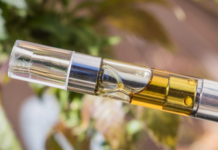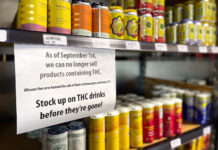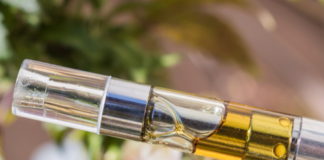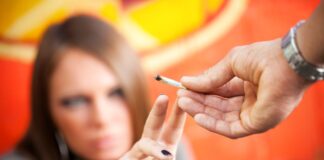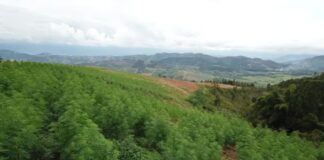As harmful bacteria adapt to resist antibiotics, one area scientists are looking at to keep people healthy has been nutrition. Think “You are what you eat,” or, in the case of a group of select newborn piglets, “You are what your mother eats.”
In an April 2019 study published in the academic journal Animals, researchers found both sows and their piglets were better able to fight off a common infection when the sows were fed a diet that included hemp seed.
“Hemp seeds are rich in polyunsaturated fatty acids as well as other bioactive compounds,” the study stated.
Hemp seeds (Erik Fenderson/Wikimedia Commons)
Hempseeds as Immunity Boosters
Piglets undergo increased stress when they transition from their mother’s milk to solid food. That stress is further complicated when they are separated from their mothers and moved to other populations. This triggers an oxidative status, or compromised immunity, leaving the piglets more susceptible to a common infection that results in diarrhea and lack of appetite. Until a ban in 2006, pig farmers commonly used antibiotics to keep infections under control.
Extensive research into breast milk has proven that immunity can be passed to offspring during breastfeeding. For instance, one April 2006 study published in the Journal of the American Osteopathic Association stated, “Human breast milk also contains numerous protective factors against infectious disease and may influence immune system development.”
As with human infants, piglets can also gain a tremendous boost at fighting infection from its mother’s milk, as well as the ability to fight off other common bacteria, viruses and parasites. “Hempseeds (HS) are a great source of phytochemicals, containing around 30% fats and 25% proteins as well as fiber, cannabinoids, vitamins and minerals,” the authors of the April 2019 study wrote.
Antibiotics have been around for more than a century, and they’re becoming less effective at fighting the kinds of bacteria that can make humans sick. This gradual reduction of efficacy stems from antibiotic resistance, which occurs when bacteria adapts to reduce the effectiveness of drugs that are designed to cure or prevent infections. Medications used to fight the strongest of those bacteria can quickly stop working, so scientists are on a constant search for alternatives.
(Marie Richie/Wikimedia Commons)
During the study, researchers divided sows into two groups and fed one group a diet which included 2% hempseed meal for 10 days before birth, then 5% until the piglets were weaned off of the milk. Laboratory analysis of blood drawn on days 1, 7, and 21 showed a significant improvement in the oxidative status of both the sows and their piglets, which had a direct impact on weight gain.
Even though there was no significant change in daily food intake between sows, the piglets whose mothers had received the hemp diet gained more weight. “The average daily gain (ADG) of piglets at 21 days was 0.169 kg for the control group compared to 0.189 kg for the hemp diet group,” the study stated.
The study’s authors cautioned that more research is needed before some correlations can be drawn, but concluded their study by saying, “Collectively, the results obtained in this study provide new insight into the beneficial effects of the dietary addition of hemp seeds as early life intervention.”
Dani Stewart
Dani Stewart is a career journalist and newsroom manager, who’s called CNN and several TV and radio stations home. She’s traded the daily news grind for telling compelling and informative stories for both new and experienced cannabis users. The San Francisco native now calls Oklahoma home.



